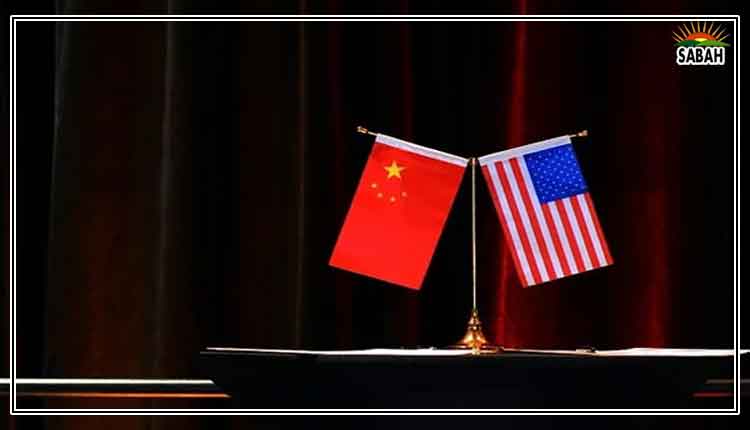Quest for leadership…Dr Taimur Shamil
The competition for global leadership between China and the US is all set. Much has been written and discussed about how the two great powers are competing in various domains like technology, space, economy and various others for influence.
Media commentary, academic journals, books and global conferences are ablaze with discourse on how the US must navigate through the challenges posed by China and vice versa. Reading the Western commentary on Xi Jinpings governing style, the Chinese Communist Party, and the slowing down of the Chinese economy is never dull. However, at the very core of this information hubris lies a more nuanced political theme that needs deliberation: the quality of leadership. To understand the future of global power dynamics and geopolitical trends, the answer lies in exploring how leadership will shape the global events.
This image shows the flags of China (L) and the US. Xinhua/File
This image shows the flags of China (L) and the US. Xinhua/File
If one has the chance to talk to Chinese officials, Middle Eastern diplomats, Sri Lankan academics or Malaysian policymakers, one would realize that the discourse about China as an emerging superpower is all set. News and media commentary is ripe with catchwords like Chinese dominance, strategic competition and the Middle Easts multi-aligning etc.
While Western discourse on China is overly focused on the Chinese economy and Chinas military buildup, the X-factor lies somewhere else. Leadership quality is going to be the single most defining factor that can hinder or foster either the US or Chinas way to maintaining great power. Lets take a detailed look at the key features of American power and leadership first.
American power lies in the established world order and the institutions that have implemented the order for almost several decades. The UN, IMF, World Bank, Nato and several others have been the machines that have established and managed American supremacy and influence. These institutions were the brainchild of an American leadership which could grasp future scenarios well. Successive American presidents had the audacity to carve out a place for the US on the world stage and sustain it. Sustaining is the real job. Nevertheless, times and people have changed and so has the quality of leadership in the US.
Democracy, law, technology, foreign policy, media and more require political leadership to direct, inspire and protect them in order to make them flourish and achieve their goals. On the contrary, uninformed individualism, fraction-ism and populism tend to impair the fabric of institutions and consequently bring undesired outcomes.
American institutions at one point were the symbol of preeminence and sophistication (not in absolute terms but relatively speaking). This is the reason the US performed globally and attracted global talent to be part of the American dream. Take the US State Department for instance; its sophisticated diplomacy must be studied in light of American presidents who have shaped the character of the State Department over the years.
The US State Department performed well until recently. Things however have changed in the US; from riots at Capitol Hill to laying off diplomats from the State Department, tussle between institutions, political standoffs and judiciary these are areas that need to be deliberated carefully. The battle among institutions, lobbies, groups, individuals and strategic clans has caused structural impairment.
On the other side is Beijing ambitious, focused, cautious, and a superpower in waiting. Its leadership style is very different from that of the US. As generally assumed, Xis style of governance is like a CEO of an organization: active, forceful and efficient. Much has been written on this.
However, Western academics, policy circles and media analysts are overly focused on Xis personality, Chinese economy and Chinese military. On the contrary, the answer to Chinas rise and organized effort lies in the Chinese Communist Partys (CCP) structure and the ability it has demonstrated to adjust and transform itself over the years according to the demands of modern times.
The CCP is a political party, a think tank and a governing body all in one. It may not be perfect but it has shown the ability to execute tasks efficiently, so far. Under Xi, it has carved out a new role for itself in Chinese society and on the world stage. It has its flaws and fractures, but the litmus test for any political body is to envision objectives and pass them down to the point where those objectives are met and executed in letter and spirit. If not already there, Xi and his party is very close to that standard.
Taking into account American and Chinese leadership characteristics is important to understand how future events will shape world politics. The future of geopolitics and global power competition is likely to rest with the quality of leadership coming at the state, regional and global levels. Societies and nations which have a mechanized and organized system of providing leadership are likely to benefit in the days to come.
Courtesy The News












